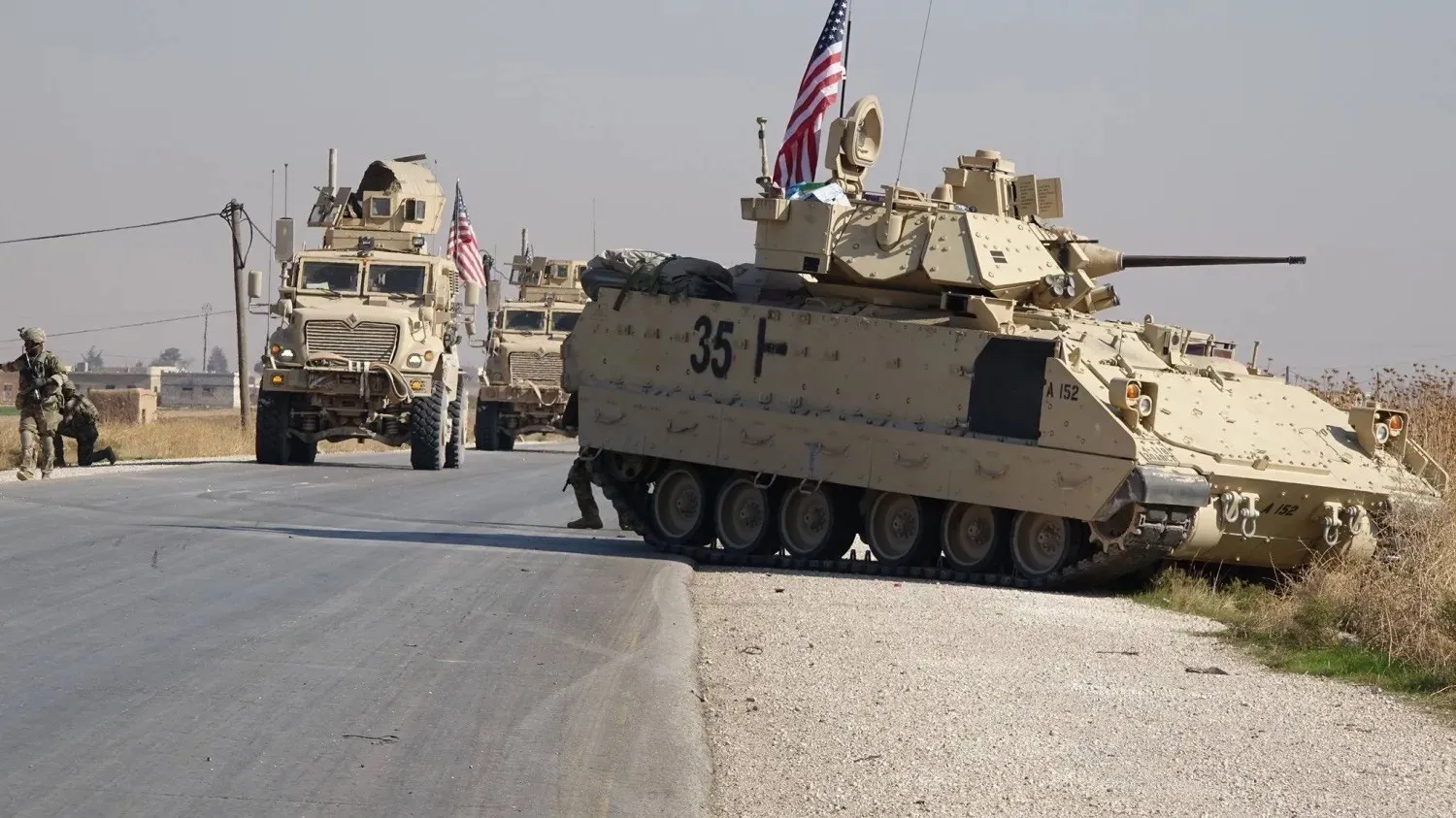US-led coalition forces in northeastern Syria were placed on high alert Friday following Israel’s military strikes against Iran, amid concerns that Iranian-backed militias in Iraq may retaliate with cross-border attacks.
Military sources reported that coalition bases in al-Hasakah province raised their alert level. Coalition aircraft conducted aerial patrols over the bases and along the Syrian-Iraqi border, anticipating potential attacks from factions aligned with Iran’s Revolutionary Guard Corps (IRGC).
The precautionary measures come on the heels of Israel’s “Operation Rising Lion,” which targeted senior IRGC figures in Tehran in what Israeli officials described as a preemptive strike. In response, the Iraqi militia Kata’ib Sayyid al-Shuhada warned it could dispatch dozens of suicide bombers to strike US interests if the conflict escalates.
Witnesses in northeastern Syria reported heavy aerial activity over al-Malikiyah and toward the Simelka-Faysh Khabur border crossing with Iraq’s Kurdistan Region early Friday. Troop movements were also observed within coalition bases.
According to local sources, over 100 trucks crossed from Iraq into Syria Thursday night via the al-Waleed border crossing. The convoy reportedly delivered military equipment, vehicles, weapons, fuel, and supplies to coalition bases in Kharab al-Jir, the Rmelan oil field, Kasrak (on the Qamishli-Tel Tamr road), and al-Shaddadi in southern Hasakah.
The heightened readiness follows a recent US decision to reduce its military presence in Syria, including the closure of three coalition facilities in Deir Ezzor province, among them the al-Omar oil field and the Conoco gas plant.
Despite the drawdown, sources say the coalition continues to receive weekly resupply shipments from its bases in Iraqi Kurdistan, maintaining its operations against ISIS cells and sustaining patrols in the region.
Meanwhile, the Syrian Democratic Forces (SDF) carried out a joint operation with coalition forces targeting a suspected ISIS sleeper cell in the town of al-Mansoura, west of Raqqa. Three suspects were arrested, including two senior figures allegedly involved in bomb-making operations. A full curfew was imposed on the area during the raid.
The SDF confirmed it seized weapons, explosive devices, and documents, and vowed to continue its counterterrorism efforts in partnership with the international coalition.









